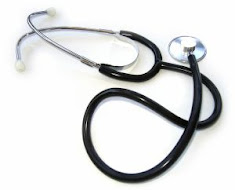Krill are small crustaceans, much like shrimp, which grow to be from one to six centimeters lengthy. They reside along the oceans flooring, and feed mostly on phytoplankton. Eaten by a big variety of wildlife such as whales, seals, penguins, squid, and fish or all types, these creatures are pretty much on the bottom with the meals chain.

Most commercial kind krill fishing is done in the southern portions of the Atlantic, Pacific, and Indian Ocean, too as the northern part of Pacific Ocean, around the coasts of Japan and Canada. The fisherman catch these wildlife to use them in aquaculture and aquarium feeds, for sport fishing, or for meals. If krill is used for food in Japan it's known as okiami.
The oil that's naturally discovered in these creatures is extracted and offered as a dietary supplement. The cause for this is due towards the reality that it's very higher in omega 3 fatty acids. It also consists of an antioxidant which is known as astaxanthin. The algae that is eaten by krill produces the vibrant red pigment, astaxanthin which makes krill, shrimp, lobster and other crustaceans their pinkish color.
These anti-oxidants assist to shield the cells within our body from some thing called 'free radicals'. Free radicals are unstable substances which several think contributes to a number of various persistent illnesses. Astaxanthin crosses the blood to brain barrier, which can make most researchers think that it may shield the eyes, mind, and central nervous system from the damage brought on by totally free radicals. Other anti-oxidants do not cross this barrier.
People ingest krill oil for the exact same uses that they would ingest flax oils, fish oils, or other omega 3 fatty acids. Fish oil can occasionally trigger a fishy burp or aftertaste, that is a recognized after effect if fish oil. Krill oil also has a larger amount of astaxanthin than fish oils do. Its utilized for several different well being reasons which consist of:
• Decreasing Cholesterol- Inside a study done on the effects of krill oil on high cholesterol, 120 individuals were offered both krill oil, fish oil, or a placebo. The ones who ingested krill oil showed a reduction of 34% in LDL or 'bad' cholesterol, and an increase of 43.5% in HDL or 'good' cholesterol in comparison to those that took a placebo. Those who took krill oil also acquired a lowered triglyceride count. The ones who took the fish oil confirmed a reduction of LDL cholesterol by 4.6% compared to the placebo, and and increase in HDL by 4.2%.
• Premenstrual Syndrome or PMS- Research shows that krill oil may help wit the symptoms of PMS, by further research is nonetheless being conducted.
• Arthritis-According to research posted within the 'Journal with the American College of Nutrition' when people got 300 mg each day of krill oil in comparison with a placebo, those who took krill oil showed efficient outcomes in relieving arthritis pain, irritation, along with other signs.
As far as aspect effects are concerned, there are really very couple of. Of course, those with allergy symptoms to seafood ought to not ingest these oil. People who have bleeding disorder are advised to speak having a doctor and be supervised by a professional well being professional prior to using krill oil. It is not recommended to use it with blood thinners such as aspirin, warfarin, heparin, clopidogrel, or NSAIDS this kind of as ibuprofen, or naproxen should not use krill oil without checking with their medical doctors. The exact same goes for gingko bilobo and garlic. Side results may include looser stools and indigestion.




0 comments:
Post a Comment